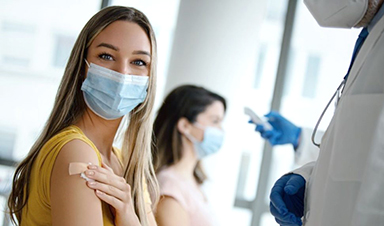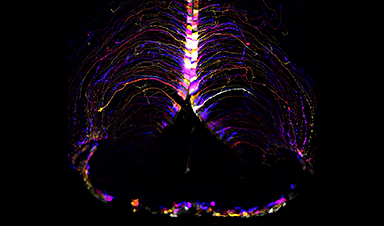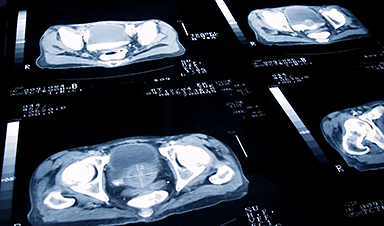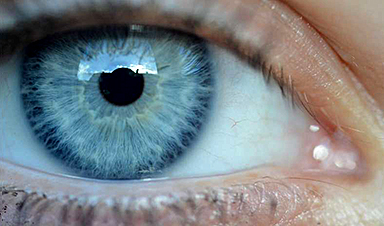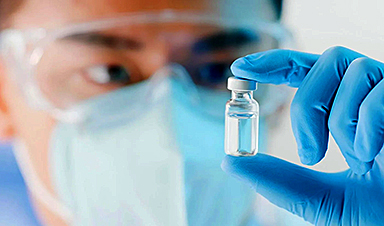As of August 6, 2021, the severe acute respiratory syndrome coronavirus 2 (SARS-CoV-2), which is the virus responsible for the coronavirus disease 2019 (COVID-19), has infected over 201 million people and caused the deaths of almost 4.3 million worldwide.
The high transmissibility and unpredictable nature of SARS-CoV-2 has supported the rapid development of several COVID-19 vaccines that have already been distributed in many countries around the world. To date, almost 30% of the world’s population has received at least one dose of a COVID-19 vaccine.
The recent rise in COVID-19 cases
The rise in SARS-CoV-2 cases in Israel, as well as many other countries around the world, requires a better understanding of how SARS-CoV-2 immune protection can weaken over time in both vaccination individuals and those who are convalesced seropositive as a result of previous SARS-CoV-2 infection. To this end, a recent study published on the preprint server medRxiv* determines whether the time elapsed since the second dose of the BNT162b2 vaccine is associated with an increased risk of breakthrough SARS-CoV-2 infection.
About the study
The current study is a retrospective cohort study that is based on data collected from the Leumit Health Services (LHS), which is a large healthcare provider in Israel. The cohort included 33,993 individuals who had received a reverse transcriptase polymerase chain reaction (RT-PCR) test between May 15, 2021, and July 26, 2021, at least two weeks after receiving their second dose of the COVID-19 vaccine.
To reflect the vaccine rollout stages, the researchers included three age groups in the study, which included individuals who were 60 or older, between the ages of 40 and 59, and between the ages of 18 and 39. Importantly, at the time of their RT-PCR test, none of the study participants had any evidence of previous COVID-19 infection.
Study results
The median time between when the participants had received the second dose of the COVID-19 vaccine and received an RT-PCR test was 146 days. However, over 50% of the participants had received an RT-PCR test over 146 days since their second dose.
Using 146 days as their cut-off, the researchers found that within the 60 and over age group, 2.19% of vaccinated individuals tested positive for SARS-CoV-2. Comparably, the positivity rate in the 40-59 and 18-39 age groups was 1.93% and 1.39%, respectively. Taken together, the increase in SARS-CoV-2 infection rates across all patient populations was significant.
Notably, at the time when the study was conducted, the dominant circulating variant was the SARS-CoV-2 Delta variant B.1.617.2. Of the 113 isolates that were sent for sequencing in this study, 93% tested positive for the Delta variant.
News
False Memories Under Fire: Surprising Science Behind What We Really Recall
New research challenges the ease of implanting false memories, highlighting flaws in the influential “Lost in the Mall” study. By reexamining the data from a previous study, researchers found that many supposed false memories [...]
Born Different? Cambridge Scientists Uncover Innate Sex Differences in Brains
Cambridge researchers found that sex differences in brain structure exist from birth, with males having more white matter and females more grey matter, highlighting early neurodiversity. Research from the Autism Research Centre at the University [...]
New study shows risk factors for dementia – virus causes deposits in the brain
Research into the causes of Alzheimer's is not yet complete. Now a new study shows that head trauma can activate herpes viruses and promote the disease. Frankfurt am Main – As a neurodegenerative disease, [...]
Are Machines Truly Thinking? Modern AI Systems Have Finally Achieved Turing’s Vision
Modern AI systems have fulfilled Turing’s vision of machines that learn and converse like humans, but challenges remain. A new paper highlights concerns about energy consumption and societal inequality while calling for more robust [...]
The Surprising Link Between Smell, Sound, and Emotions
New research reveals how smell and hearing interact in the brain to drive social behavior, using mouse maternal instincts as a model. Imagine you’re at a dinner party, but you can’t smell the food [...]
Brain cells age at different rates
As our body ages, not only joints, bones and muscles wear out, but also our nervous system. Nerve cells die, are no longer fully replaced, and the brain shrinks. "Aging is the most important risk factor [...]
Long COVID Breakthrough: Spike Proteins Persist in Brain for Years
Researchers have discovered that the SARS-CoV-2 spike protein persists in the brain and skull bone marrow for years after infection, potentially leading to chronic inflammation and neurodegenerative diseases. Researchers from Helmholtz Munich and Ludwig-Maximilians-Universität (LMU) have [...]
Water-Resistant Paper Could Revolutionize Packaging and Replace Plastic
A groundbreaking study showcases the creation of sustainable hydrophobic paper, enhanced by cellulose nanofibres and peptides, presenting a biodegradable alternative to petroleum-based materials, with potential uses in packaging and biomedical devices. Researchers aimed to [...]
NIH Scientists Discover Game-Changing Antibodies Against Malaria
Novel antibodies have the potential to pave the way for the next generation of malaria interventions. Researchers at the National Institutes of Health (NIH) have identified a novel class of antibodies that target a previously unexplored region [...]
Surprising Discovery: What If Some Cancer Genes Are Actually Protecting You?
A surprising discovery reveals that a gene previously thought to accelerate esophageal cancer actually helps protect against it initially. This pivotal study could lead to better prediction and prevention strategies tailored to individual genetic [...]
The Cancer Test That Exposes What Conventional Scans Miss
Researchers at UCLA have unveiled startling findings using PSMA-PET imaging that reveal nearly half of patients diagnosed with high-risk prostate cancer might actually have metastases missed by traditional imaging methods. This revelation could profoundly affect future [...]
Pupil size in sleep reveals how memories are processed
Cornell University researchers have found that the pupil is key to understanding how, and when, the brain forms strong, long-lasting memories. By studying mice equipped with brain electrodes and tiny eye-tracking cameras, the researchers [...]
Stanford’s Vaccine Breakthrough Boosts Flu Protection Like Never Before
Stanford Medicine researchers have developed a new method for influenza vaccination that encourages a robust immune response to all four common flu subtypes, potentially increasing the vaccine’s efficacy. In laboratory tests using human tonsil [...]
Water’s Worst Nightmare: The Rise of Superhydrophobic Materials
New materials with near-perfect water repellency offer potential for self-cleaning surfaces in cars and buildings. Scientists from Karlsruhe Institute of Technology (KIT) and the Indian Institute of Technology Guwahati (IITG) have developed a surface [...]
Japanese dentists test drug to help people with missing teeth regrow new ones
Japanese dentists are testing a groundbreaking drug that could enable people with missing teeth to grow new ones, reducing the need for dentures and implants, AFP recently reported. Katsu Takahashi, head of oral surgery at [...]
An AI system has reached human level on a test for ‘general intelligence’
A new artificial intelligence (AI) model has just achieved human-level results on a test designed to measure "general intelligence." On December 20, OpenAI's o3 system scored 85% on the ARC-AGI benchmark, well above the previous AI best [...]
